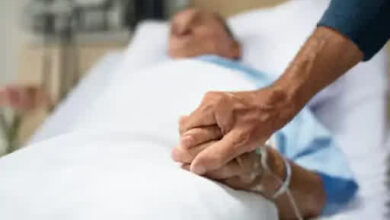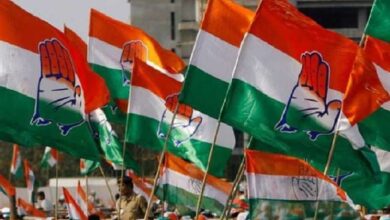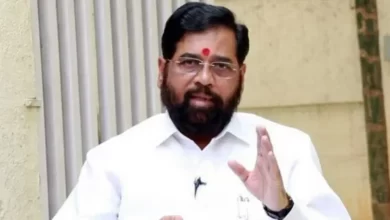little is needed

Has it been felt over time that some new human rights also need to be recognized?
Bibha Tripathi
Has it been felt over time that some new human rights also need to be recognized? Are there some aspects which are still untouched? Are there any such milestones in this long development journey of human rights, where there has been a conflict situation between different human rights?
Even in the seventy-third year of the existence of the Universal Declaration of Human Rights, its discussion in the Indian context is as relevant as it was felt in the early years and decades. The reason for this is not because there is a violation of human rights, but because whenever the occasion comes to celebrate a special national or international day, then it is a very important occasion for evaluation, discussion and thought. So that we know what have we got so far? And what is it that still remains to be achieved?
Many years ago today, the former Chief Justice of India and the then Chairman of the National Human Rights Commission, KG Balakrishnan, said on the occasion of Human Rights Day that such progressive efforts are being made continuously by the state government and its enforcement machinery, which can protect human rights. and various working methods are being monitored. Such social evils and practices are going out of practice, which have been found to be against human dignity. Still, much remains to be done and yet to be found.
While the Universal Declaration of Human Rights recognized the inherent dignity of all members of the human family and their respect and rights as the basis for freedom, justice and peace in the world, it was later realized that Articles one to thirty contained in it Specific Declarations, Conventions, Covenants, Optional Messages, Memorandums and Guides, respectively, were also created for the rights sought to be protected and promoted, so that the States Parties specifically signing and adopting them were also be compelled to make laws in this regard in his State and make reasonable efforts to protect the human rights of all human beings.
But whenever human rights are talked about in the context of a particular state, the question arises, how are the human rights being protected by the various agencies of the state, which are basically called enforcement mechanisms? What are the flaws? What are the limits? What are the problems? And how can they be removed? And has it been felt over time that some new human rights also need to be recognized? Are there some aspects which are still untouched? Are there some such stages in this long development journey of human rights, where there has been a conflict situation between different human rights?
Responsibility and accountability are not mere words, but that sense, lacking which every human is inhuman and every institution is inhuman. More important than trust is the true effort to live up to the belief. To bring the concept of justice to the realistic level, there is a need for a concerted effort and a concerted initiative. This was strongly advocated by the current Chief Justice NV Raman on the occasion of Constitution Day. He also expressed concern over the recent attacks on justice providers. Where till now only the media, especially social media, used to be aggressive, now physical attacks on judges have become a matter of serious consideration.
Women, who are arrested for being with the Maoists, are subjected to various kinds of torture in police custody, sexually abused and, years later, acquitted of all charges. What about their human rights? This is a serious question.
When it comes to undertrials or convicted prisoners lodged in various jails and on the one hand, the initiative of the National Human Rights Commission to bring justice to the prisoners in Delhi through the legal aid system by promoting the spirit of public service among law students. While a pilot project to improve access comes as relief news, more serious questions arise beyond the human rights of undertrials or other prisoners in prisons. For example, the question of human rights of children dependent on them, who have been deprived of their fundamental and natural human rights by simply being imprisoned by their imprisoned parents for no fault of their own. How are they protected? Which policy was made for them? This question is serious and worth considering.
The country’s various prison codes of conduct, where it provides that in case a woman is imprisoned, her children can stay with her till the age of six, that provision is a protection of human rights, but also a serious violation of other human rights. Is. The Act, while making special provisions for the prosecution, trial and detention of children above the age of seven years, ensures that no juvenile of the age group is kept in the company of adult offenders. At the same time, even after there is strong evidence that the maximum development of the learning ability of children occurs for one thousand days from the period of their conception, how much to keep in the company of their mother and other female prisoners in a women’s prison for six years? is relevant?
It is also pertinent to mention here that at the twenty-eighth foundation day celebrations of the National Human Rights Commission, the Prime Minister had warned that there should be no selective discussion of human rights and that the greatest violation of human rights occurs when they are given political and political gains. – Seen through the prism of loss. is important.
On this occasion, it is informed by quoting the Human Rights Commission that the commission established in 1993, till the completion of twenty eight years of its establishment, has disposed of more than twenty lakh cases and more than 205 crore has been paid as monetary relief. has gone. But taking pride in its contribution, the commission calling itself a toothless lion also raises serious questions.
It is relevant to mention some of the human rights issues raised by the present Chairman of the Human Rights Commission. Such as, effective and long-term policies for speedy justice at affordable cost to the people, strengthening the police investigation system, providing life saving drugs at affordable prices to the poor and ensuring that the rights of the patent holders of such drugs and vaccines are protected by life rather than rights. The right to be given importance.
The National Human Rights Commission is scheduled to conduct six studies this year on various human rights issues, including food security for Scheduled Castes and Scheduled Tribes, the prevalence of cyber-exploitation of children and the declining participation of women in the workforce, and the mental health and substance abuse issues of the LGBT community. The topic of consumption has been taken up prominently.
In the end, it can be said that in this long journey of human rights something has been found and some is left i.e. little is needed, little is needed. Our commitment to the balance, promotion and protection of all and all human rights must remain strong.
,






